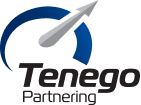Last week, I attended a Masterclass on “Agile Leadership” with Kaihan Krippendorff hosted the Irish Management Institute (IMI). I immediately bought his book “Outthink the Competition” on Audible and listened much of it that day while driving to Dundalk and back again. I was delivering a Sales Channel Workshop to a group of startup companies.
The first step in Kaihan’s model is about ‘imagining the future mess’ that your offering proposes to resolve. Kaihan got me thinking about the future mess in sales channels. With the changes we’ve seen in the past ten and twenty years, then what will change over the next ten years by 2030?
To determine what industry trends are impacting how sales channels work, I first needed to define the problem that sales channels solve and then what trends impact that problem. Partnering is a matching of capabilities. Software Vendors / ISVs partner with referral partner, resellers, distributors etc for access to the market, domain knowledge, local market knowledge, ready-built in-market capabilities and established credible relationships with decision-makers.
How will the power of Sales Partners’ Relationships change in the next ten years, based on past trends?
Credible Relationships with Decision Makers
Getting access to decision-makers quickly through a trusted advisor or credible influencer accelerates the sales process and dramatically reduces the cost of customer acquisition. Companies can spend up to 80% of their customer acquisition budget on getting to the point of credibility with a decision-maker; where the buyer sees you as a credible expert in solving their needs. You have earned this credibility through many interactions through your marketing and sales process. The point of crediblity maybe the ‘Discovery’ stage of your sales process.
Relationships carry different weight in different cultures across the world. For example, business relationships are formed faster in the US than in European countries. Germany puts great emphasis on relationships and integrity in business. China and Japan seek to establish a relationship first and then consider doing business. A relationship-first culture affects the pace of doing business. A relationship-first culture puts greater weigh on the value of the local partner.
Relationships remain important in niche high-value sectors, such as Telco and Biopharma, where decision-makers are challenging to reach and in high-demand. The trusted provider offers a great advantage in their ability to get in these doors.
Getting to the Point of Credibility Faster and Cheaper
The appropriate partner can get you to this point of credibility with little cost, based on their relationships. That’s the power of the partners’ relationships. Your brand is your reputation. The partners’ brand carries companies into markets.
Has the power of relationships changed in the past 20 years?
• Banks thought that customers wouldn’t just trust anyone with their money. At the same time, new online players are continually chipping away at their business.
• We are buying more and more online and require less trust and relationships to make a purchase decision.
• We are buying more and more SaaS point-solutions from vendors without knowing where or what they are.
• With the pace of change, large enterprises are working with more innovative ‘best-of-breed’ solutions rather than relying on the safe bets with the large Global System Integrators and tech giants.
• With the reduced need for technical implementation, the balance of power is shifting. Systems Integrators / Value-Added-Resellers have changed to more business domain and business process expertise.
Will the power of relationships change in the next 10 years?
• Relationships matter more when the customer has complex decisions to make and maybe multiple providers to select from. They look to an expert they can trust to help them through the process. Example: Cyber Security
• Specialist and unique solutions vendors may not need a pre-existing relationship, as their compelling customer proposition is sufficient.
• Point solutions solving narrowly defined needs, are easier to assess and require less local expertise. The need for independent specialist expertise may change as segments markets get crowded and confusing for decision-makers.
• Advisors’ recommendations carry great power in crowded and commodity markets. Examples: CRM, Accounts, Anti-Virus.
• Relationships will remain strong where decision-makers are challenging to get access to, particularly in high-value sectors and regions, like Telco, BioPharma and Government.
In Tenego, we identify partner types through a market ecosystem approach. Market ecosystems are changing with new technology solutions and changes in how customers are buying. The ‘traditional’ channels of SIs/VARs, MSPs and Distributors have changed significantly and are continuing to evolve. I believe Referral Partners will grow in prominence in future sales channels.
Regardless of your solution space or your target customers, the path to the decision-maker is changing.
These are some of my observations. How have you seen the changes, and what do you see changing in the future in your business?




